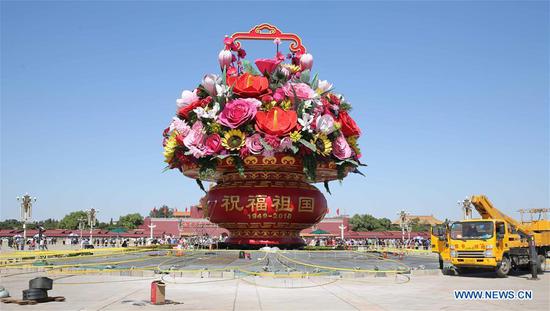The U.S. real estate sector may suffer more severely than its counterpart in China if the trade dispute between the United States and China gets more serious, said Robert McKellar, Asia-Pacific region executive chairman with international real estate services provider Savills.
The U.S. move to impose higher tariffs on Chinese imports will result in a rise in product prices and inflation, ultimately leading to an interest rate hike, he said.
U.S. consumers normally borrow more than their Chinese counterparts when buying residential property, and an interest rate rise means that they have to bear a heavier burden repaying housing loans, McKellar told China Daily in an interview on Friday.
"The American property market in a trade war, if it is a serious trade war, will suffer more than the Chinese market will," he said.
With regard to China's residential property market, he noted that government policy would have a greater bearing than the impact of the trade dispute with the U.S..
"I don't think it will have very much impact on the Chinese residential market because the residential market in China is very strong. Also, Chinese people don't borrow that much to buy properties (compared with their U.S. counterparts) and the government restricts where you can buy and how you can buy, but it doesn't lend much money, so it (the trade dispute) is less of an issue."
He said trade friction between the U.S. and China has not cast a shadow on China's property market so far, but if it lasts longer and gets more serious, it may have a negative impact on the Chinese commercial property market, as affected companies may reduce their demand for office space.
However, he is still positive about China's real estate market, believing that the country is the most promising one for property investment in the Asia-Pacific region.
"China has a growing economy, with GDP expanding 6.5 percent. Although it is slowing down, it is still huge. And you have got urbanization, with more people coming to live in cities, increasing the demand for housing, retail and commercial office," McKellar said.
He placed particularly high expectations on the prospects for the property market in cities such as Chongqing, Wuhan, Hangzhou and Xi'an.
"Property prices in those markets are not very expensive, but there is a lot of investment and development going on there, and also a lot of money from the government. They may probably experience the same growth as (property markets in) Beijing, Shanghai, Guangzhou and Shenzhen," he predicted.
According to the National Bureau of Statistics, investment in Chinese property development grew 9.7 percent year-on-year to 5.55 trillion yuan ($810 billion) in the first half of this year. Of this, 70.2 percent was residential property investment.
Revenue from residential sales rose almost 15 percent over the same period, compared with a 3.2 percent drop in revenue from office realty sales and a 5.7 percent increase in that from commercial property sales.


















































